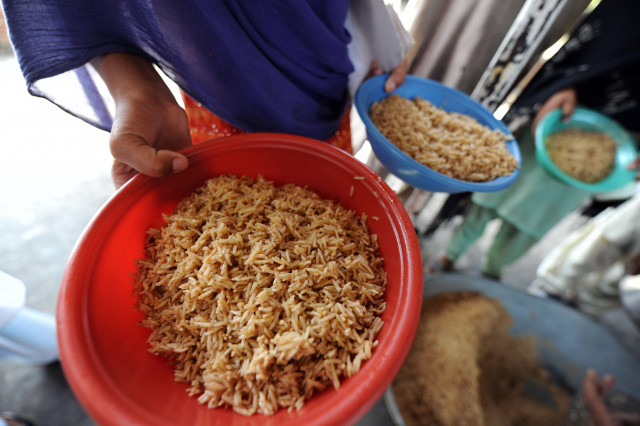Food insecurity and hunger in Pakistan
There is an urgent need for govt to realise severity of the situation and take policy measures to avert the crises

PHOTO: FILE
The Pakistan Bureau of Statistics (PBS) has recently released the key findings of the Household Integrated Economic Survey (HIES), 2018-19. It reveals that 16% of the population is experiencing moderate or severe food insecurity. The incidence is twice as high among the rural population, 20%, as among the urban, 9.2%. Shockingly, three out of five households, 61%, among the lowest two income quantiles in the survey, are experiencing food insecurity.
The World Food Program (WFP) 2020 reports that over three million people in the country are experiencing severe food insecurity, mainly in the drought-affected districts of Balochistan and Sindh. Over half a million people in these provinces are described as in emergency conditions.
The situation has further worsened since March 2020 as a result of the pandemic crisis. As the economy has shrunk, the rate of unemployment and poverty has risen. The worst affected are the poorest segment of the population, who are more likely to be wage labourers, peasant farmers, women, and children.
Now, as if the economic shock of the pandemic were not enough, swarms of desert locust have arrived to attack crops and damage rural livelihoods, particularly in Balochistan, Sindh and South Punjab. The situation is still unfolding, and unfortunately, the signs are that the worst may still be to come.
The Food and Agriculture Organization (FAO) is warning that the magnitude of damage to the crops poses a severe threat to the food security and livelihood of affected communities. It forecasts economic losses of over $5.1 billion, depending on the scale of damage to the crops.
The shortcomings in public policy to address this are apparent at three levels. First, the government appears to be more concerned about the security of the state than the food insecurity of the people. Despite the publication of the first ever policy report on national food security in 2018, progress on the key policy goals — the eradication of hunger and malnutrition and the improvement of food security — seems to be invisible.
Second, higher food prices since 2018 have adversely affected the affordability of food for the poor. The PBS, May 2020, shows a general inflation rate of 8.2% in the country, an increase from 5% in May 2018. For the same period, the general rural inflation rate has doubled, from 4.5 to 9.7%. As the poor spend a considerably higher share of their income on food, this has a greater effect on their purchasing power. So, with the same level of income, they are able to buy less food.
Third, there is poor coordination between the centre and the provinces for monitoring and responding early to the problems of food insecurity. This is despite the passage of the landmark 18th Amendment in 2010, which devolves agriculture and food security to the provincial level.
There is an urgent need for the PTI government to realise the severity of the situation and take special policy measures to avert the unfolding crises. One, increase resources for the improvement of food security; two increase co-operation, instead of confrontation, with the respective provincial governments; and three, control the rising prices of essential food items, and to improve its accessibility and affordability for the poor, to enable them to live a life without fear of hunger and uncertainty of food.
Published in The Express Tribune, June 24th, 2020.
Like Opinion & Editorial on Facebook, follow @ETOpEd on Twitter to receive all updates on all our daily pieces.















COMMENTS
Comments are moderated and generally will be posted if they are on-topic and not abusive.
For more information, please see our Comments FAQ